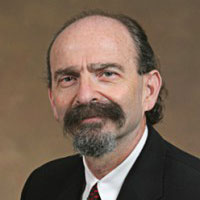
Coercive practices and treatments in social services are common but seldom subjects of critical public discussion. Florida State University is changing the conversation by taking a look at the pros and cons of coercive approaches in the helping professions and institutions relevant to students, academics, local and state government, private agency professionals, clinicians and interested citizens.
The daylong conference of international experts, “Coercion and the Helping Professions,” is a collaboration among the FSU College of Social Work, FSU College of Criminology and Criminal Justice, the Institute for Humane Studies at George Mason University and the John Templeton Foundation.
The event, which is free and open to the public, will take place from 9 a.m. to 5 p.m. Wednesday, Nov. 9, at the Augustus B. Turnbull III Florida State Conference Center, 555 W. Pensacola St.
The idea for the conference was the brainchild of FSU College of Social Work Associate Professor Tomi Gomory.
“The purpose of this innovative conference is to provide a forum for the various constituencies to hear and dialogue with international experts about the ethics of the various coercive practices and policies and the latest empirical research results of its employment,” Gomory said. “Is it ethical to employ, when? Is it effective? What does the empirical research tell us? We hope to stimulate further discussion and action based on hearing the best information currently available.”
The practice of coercion appears in multiple areas, including mental health using involuntary hospitalization through the Baker Act and in child welfare when children are removed from their families. It also takes place in the criminal justice system with incarceration and goes further with additional requirements like drug rehabilitation and other interventions.
The event will feature six speakers from different parts of the country and abroad, who will discuss coercion and the use of force in the fields of child welfare, mental health, criminal justice, addiction and healthcare.
Featured speakers include:
- Gary Melton: Associate Director for Community Development and Social Policy, Kempe Center for the Prevention and Treatment of Child Abuse and Neglect
- David Rothman: Bernard Shoenberg Professor of Social Medicine at Columbia University
- Michael Huemer: Professor of Philosophy at the University of Colorado at Boulder
- Bruce Alexander: Professor Emeritus at Simon Fraser University in Vancouver, Canadra
- Gavin Davidson: senior lecturer at the School of Social Sciences, Education and Social Work at Queen’s University in Northern Ireland
- Thomas Blomberg: Dean and Sheldon L. Messinger Professor of Criminology at Florida State University
“I am especially pleased that the conference is a multi-college event,” said Jim Clark, dean of the College of Social Work. “Dean Blomberg has written and published extensively on the public policy issues of coercion, control and liberty throughout his scholarly career, and will ably represent Florida State University on this distinguished roster of speakers.”
Although social work is one of the biggest and broadest professions that routinely utilizes coercive practices through counseling, mental health and addiction services, other fields like psychology, psychiatry and medicine use them as well. The conference aims to reach a broad audience consisting of professionals in those helping services as well as students, faculty and the interested layperson.
Dean Clark hopes this unique conference will challenge attendees’ assumptions about the justifications and effectiveness of coercion practices.
“Coercion is a key concept that, when analyzed, opens up a broad range of concerns,” Clark said. “And those concerns deserve philosophical and empirical scrutiny, now more than ever.”
To register for the conference visit www.tfaforms.com/440990.




